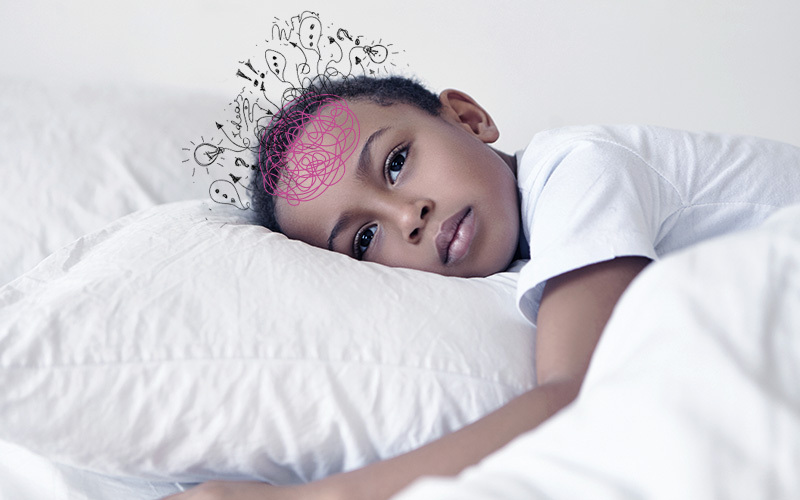Sound sleep, sound mind: The importance of sleep for preteens’ developing brains

When your preteen doesn’t get enough sound sleep, some of the signs, like crankiness, are obvious. But some of the effects are more subtle. A large, first-of-its-kind study from Boston Children’s Hospital now shows that too little or poor-quality sleep may prevent the brain from developing strong, efficient connections.
“Early adolescence is a critical time in brain development,” says lead researcher Dr. Caterina Stamoulis, who directs the Computational Neuroscience Laboratory at Boston Children’s. “Preteens’ brain circuits are rapidly maturing, especially those involved in higher-level thought processes like decision-making, problem-solving, and executive function — the ability to plan, coordinate, and control actions and behaviors.”
Analyzing sleep patterns
Dr. Stamoulis, with Dr. Eliot Katz, a physician in Boston Children’s Sleep Center, and research assistant Skylar Brooks, analyzed sleep and brain imaging data from more than 5,500 9- to 11-year-olds, drawn from the long-running, government-funded Adolescent Brain Cognitive Development (ABCD) study. All children had undergone functional magnetic resonance imaging (fMRI) while awake but not engaged in any task.
Parents completed detailed surveys about their children’s sleep habits. The surveys asked about hours of nightly sleep, how long the child takes to fall asleep, waking from sleep, difficulty falling back to sleep, difficulty breathing, snoring, nightmares, difficulty waking up, daytime sleepiness, and more.
A variety of factors were linked to the amount and quality of sleep:
- Boys slept more than girls, averaging 9 to 11 hours of sleep as compared with 8 to 9 hours for girls. Girls took longer than boys to fall asleep.
- White children slept more than children of other races, averaging 9 to 11 hours versus 8 to 9 hours. Children of other races also tended to have lower-quality sleep.
- Higher family income was associated with longer sleep duration.
- Longer periods of screen time were associated with shorter sleep duration.
- Being overweight was associated with shorter sleep duration, more movement during the night, sweating, snoring, difficulty waking, and daytime sleepiness. But inadequate sleep seemed to have effects on the brain independent of unhealthy weight.
Sleep and brain networks
With the imaging data in hand, the team used mathematical techniques to examine multiple brain networks that play key roles in cognitive function. These network properties reflect how efficiently the brain processes information and how resilient its circuitry is to stressors such as adverse life events.
When the researchers analyzed the brain data against the sleep data, they found that preteens who got fewer than the recommended hours of sleep, took longer to fall asleep, woke frequently during the night, and had disordered breathing during sleep (such as snoring) were more likely to have brain networks that were less efficient, less able to adapt and rewire, and less resilient to stress.
“The network abnormalities we identified can potentially affect multiple cognitive processes, including attention, the ability to regulate one’s emotions, memory, and the ability to plan, coordinate, and control actions and behaviors,” says Dr. Stamoulis. “They can potentially affect how adolescents make decisions, control behavior, process information, and learn. One of the best things you can do for your child’s brain health is to help them consistently get a good night’s sleep.”
Visit Dr. Stamoulis’s lab and the Sleep Center at Boston Children’s Hospital.
Related Posts :
-

Regular physical activity linked to more 'fit' preteen brains
We know exercise has many health benefits. A new study from Boston Children’s Hospital adds another benefit: Physical activity ...
-

Teens, anxiety, and depression: How worried should parents be?
Part of the work of being a teenager is making connections outside of the family and becoming attuned to world ...
-

Eight tips to get your kids on a good sleep schedule
If your kids are staying up past midnight and not getting out of bed until after noon, they are in ...
-

Help kids fight the "Selfie Effect" and build self-esteem instead
It may be hard to imagine now, but there was a time not too long ago when social media didn’...





